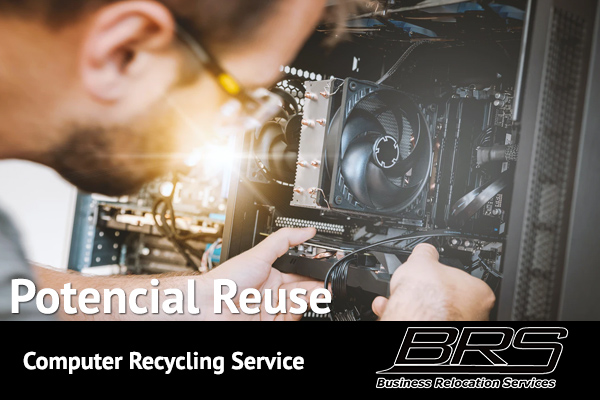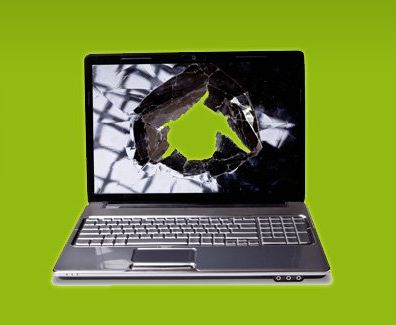Go Eco-friendly: Effective and Secure Computer Recycling Options
Go Eco-friendly: Effective and Secure Computer Recycling Options
Blog Article
Sustainable IT Solutions: Trustworthy Computer Recycling Provider
As technology remains to advance at a rapid pace, the problem of digital waste, or e-waste, has come to be a pushing concern for both people and companies alike. The improper disposal of computers and various other digital tools not only adds to ecological degradation, yet also postures significant threats to human health and wellness. Due to this, the requirement for credible computer reusing services has never ever been more vital. In this discussion, we will check out the environmental influence of e-waste, the advantages of responsible computer system recycling, how to pick a credible recycling solution, the recycling process for computers and digital gadgets, and the role of government policies in e-waste management. Join us as we discover the sustainable IT solutions that can aid us browse the intricacies of electronic waste in a liable and trusted way.
The Environmental Impact of E-Waste
The inappropriate disposal of digital waste, frequently called e-waste, has significant ecological effects. E-waste describes discarded digital gadgets such as computers, smartphones, and tvs (computer recycling). These devices consist of dangerous materials such as lead, mercury, cadmium, and brominated flame resistants, which can be dangerous to both human health and wellness and the setting if not effectively taken care of
When e-waste is poorly gotten rid of, it frequently finishes up in landfills or is blazed, launching harmful materials right into the air, water, and soil. The release of these unsafe materials can pollute groundwater, contaminate the air, and add to soil destruction, posturing major wellness risks to neighboring neighborhoods and ecosystems.
Moreover, the inappropriate disposal of e-waste likewise adds to the depletion of natural deposits. computer recycling. If appropriately recycled, many electronic devices include important metals like gold, silver, and copper that can be recouped and recycled. Nonetheless, when e-waste is not reused, these valuable resources are lost, and the demand for brand-new basic materials boosts, causing boosted mining tasks and more environmental degradation.
To mitigate the environmental impact of e-waste, correct recycling and disposal approaches must be employed. This consists of the liable collection, taking apart, and recycling of electronic tools to recover beneficial products and ensure the safe administration of dangerous compounds. Executing effective e-waste management techniques is important to secure the atmosphere, preserve sources, and advertise a sustainable future.

Benefits of Accountable Computer Recycling
Properly reusing computers provides a multitude of benefits, consisting of environmental preservation and source conservation. Responsible computer reusing not just helps stop digital waste from winding up in land fills, but it likewise reduces the demand for resources and power in the manufacturing of brand-new devices.
Among one of the most substantial advantages of accountable computer recycling is the conservation of the setting. When electronic waste is incorrectly dealt with, it can launch harmful substances such as lead, mercury, and cadmium into the soil and water, posing a threat to communities and human wellness. By recycling computers, these damaging materials can be securely drawn out and dealt with, reducing the risk of contamination.
Another benefit is resource conservation. Computers have beneficial materials like gold, light weight aluminum, silver, and copper, which can be recovered and reused via reusing procedures. By extracting and reusing these products, the need for mining new resources is minimized, conserving natural deposits and minimizing the environmental impact of source removal.
Moreover, responsible computer system reusing helps to reduce energy intake. Production brand-new computer systems calls for a substantial amount of power, from the removal of raw products to the setting up process. By recycling computers and reusing their elements, the energy-intensive manufacturing process can be avoided, resulting in a decrease in greenhouse gas emissions and a much more lasting usage of power sources.
How to Choose a Trustworthy Computer System Recycling Solution
When picking a computer system reusing solution, it is necessary to think about a few essential elements to make sure that you pick a trustworthy and reliable provider. It is essential to confirm if the recycling solution complies with correct ecological policies and practices. A credible service provider will have certifications and certifications that demonstrate their dedication to liable recycling. Search for certifications such as R2 (Accountable Recycling) or e-Stewards, which guarantee that the recycling procedure meets strict standards for environmental management and information protection. Inspect if the service offers safe data damage. Data safety is a vital problem when recycling computer systems, as sensitive details stored on old devices can be vulnerable to theft or abuse. A credible recycling service need to have safe data damage methods in position, such as information cleaning or physical destruction of storage tools. Additionally, think about the solution's performance history and reputation. Look for testimonials or testimonials from previous customers to determine their degree of customer complete satisfaction and integrity. Consider the service's transparency and liability. A trustworthy supplier needs to have the ability to supply detailed information about their recycling process, including exactly how they manage dangerous products and make certain correct disposal. By taking into consideration these variables, you can choose a computer reusing solution that is ethical, dependable, and eco liable.
The Recycling Refine for Computer Systems and Digital Gadgets
To ensure responsible disposal and minimize ecological influence, understanding the reusing procedure for computer systems and electronic devices is vital when picking a reliable recycling service. The recycling process for these devices generally entails a number of phases.
To start with, the gadgets are accumulated from individuals, organizations, or drop-off factors. This collection procedure might entail transport logistics and safe managing to secure the sensitive data included within the devices. Once accumulated, the tools are sorted based upon their type, such as laptops, desktops, or smart devices.
After sorting, the devices go through a thorough data damage procedure to guarantee that any type of sensitive or personal details is completely gotten rid of. This step is important to shield the privacy and protection of individuals and organizations. Data damage techniques might consist of cleaning, degaussing, or physical destruction of the storage media.
Next, the devices are taken apart right into their private parts. This enables for the splitting up of various products, such as plastics, metals, and my link motherboard. These materials are then sent out to specialized reusing facilities for additional processing.
The recycling centers use numerous techniques to remove valuable products from the digital waste. These products can be recycled or repurposed in the production of new items. The staying waste is taken care of in an eco liable way, sticking to governing guidelines.
The Function of Federal Government Laws in E-Waste Monitoring
Government policies play a critical duty in the reliable administration of e-waste. With the continuous growth of the electronic devices market and the enhancing worry for ecological sustainability, the demand for correct disposal and recycling of digital waste has become extra noticeable. Federal government policies help to guarantee that e-waste is managed in a lasting and liable fashion.
One of the key roles of federal government guidelines is to set standards and standards for e-waste administration. These regulations define the appropriate methods for collection, transport, and recycling of electronic waste. By establishing these criteria, governments can guarantee that e-waste is dealt with in a manner that lessens its impact on the environment and human health.
This includes executing take-back programs, where makers are responsible for gathering and reusing digital waste Resources from customers. These Read More Here regulations assist to change the worry of e-waste management from the individual customer to the market, making certain that digital waste is managed in an extra sustainable manner.

Final Thought
In final thought, it is critical to think about the ecological impact of e-waste and choose a credible computer recycling service to properly get rid of electronic tools. By following federal government policies and participating in proper reusing processes, we can alleviate the unfavorable results of e-waste on the environment and promote a more sustainable future.
In this conversation, we will certainly explore the ecological effect of e-waste, the benefits of liable computer recycling, how to pick a reliable recycling service, the recycling process for computers and electronic gadgets, and the function of federal government policies in e-waste management. Computer systems consist of important products like gold, copper, aluminum, and silver, which can be recouped and recycled via recycling procedures.In addition, responsible computer system reusing aids to lower power consumption. Data safety and security is a critical issue when reusing computers, as delicate info saved on old tools can be prone to burglary or misuse. By thinking about these aspects, you can pick a computer system reusing solution that is ethical, trusted, and environmentally responsible.
Report this page